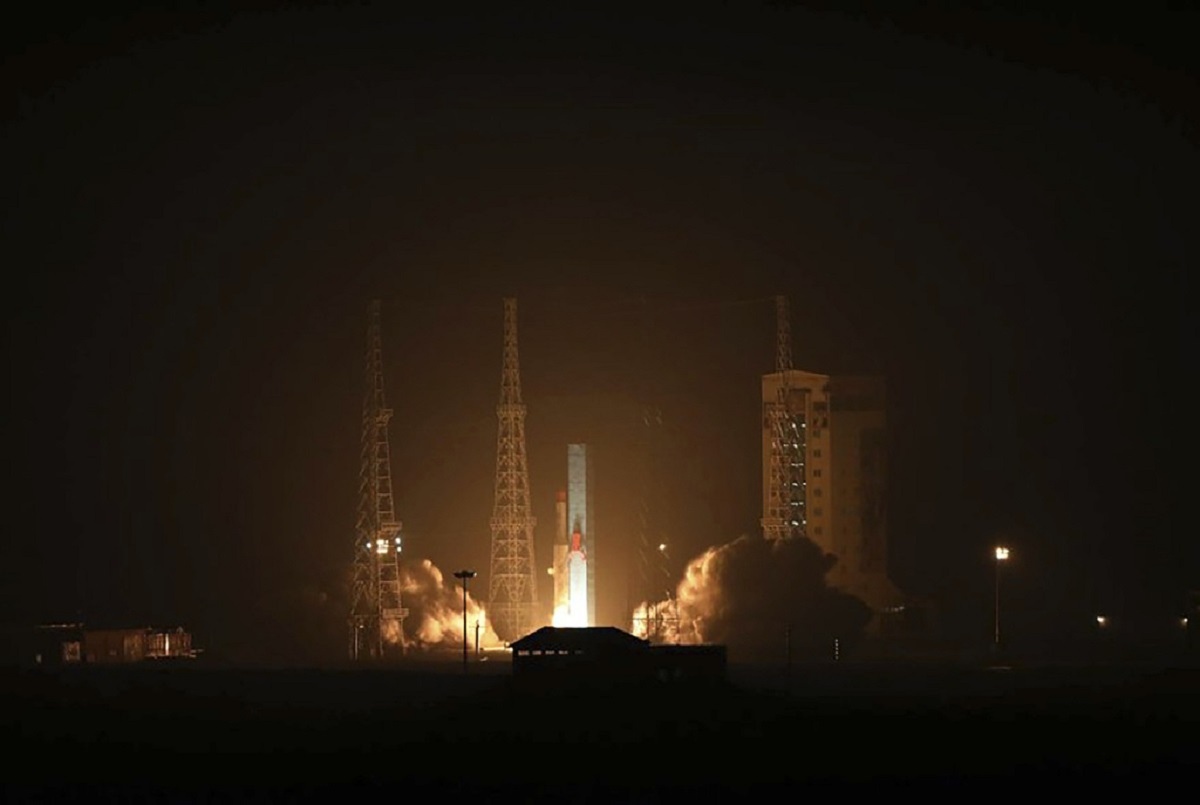Iran Launches 3 Satellites into Space That Are Part of a Western-criticized Program as Tensions Rise

This photo released by the Iranian Defense Ministry on Sunday claims to show a satellite carrier is launched at the Imam Khomeini Spaceport in Iran’s rural Semnan Province.
16:25 JST, January 28, 2024
JERUSALEM (AP) — Iran said Sunday it successfully launched three satellites into space, the latest for a program that the West says improves Tehran’s ballistic missiles.
The state-run IRNA news agency said the launch also saw the successful use of Iran’s Simorgh rocket, which has had multiple failures in the past.
The launch comes as heightened tensions grip the wider Middle East over Israel’s continued war on Hamas in the Gaza Strip.
While Iran has not intervened militarily in the conflict, it has faced increased pressure within its theocracy for action after a deadly Islamic State suicide bombing earlier this month and as proxy groups like Yemen’s Houthi rebels conduct attacks linked to the war.
Footage released by Iranian state television showed a nighttime launch for the Simorgh rocket. An Associated Press analysis of the footage’s details showed that it took place at the Imam Khomeini Spaceport in Iran’s rural Semnan province.
State TV named the launched satellites Mahda, Kayhan-2 and Hatef-1. It described the Mahda as a research satellite, while the Kayhan and the Hatef were nanosatellites focused on global positioning and communication respectively.
There have been five failed launches in a row for the Simorgh program, another satellite-carrying rocket. The Simorgh, or “Phoenix,” rocket failures have been part of a series of setbacks in recent years for Iran’s civilian space program, including fatal fires and a launchpad rocket explosion that drew the attention of former U.S. President Donald Trump.
The United States has previously said Iran’s satellite launches defy a U.N. Security Council resolution and called on Tehran to undertake no activity involving ballistic missiles capable of delivering nuclear weapons. U.N. sanctions related to Iran’s ballistic missile program expired last October.
The U.S. intelligence community’s 2023 worldwide threat assessment said the development of satellite launch vehicles “shortens the timeline” for Iran to develop an intercontinental ballistic missile because it uses similar technology.
The U.S. military and the State Department did not immediately respond to requests for comment. However, the U.S. military has quietly acknowledged a successful Iranian satellite launch from Jan. 20 conducted by the country’s paramilitary Revolutionary Guard.
"News Services" POPULAR ARTICLE
-

American Playwright Jeremy O. Harris Arrested in Japan on Alleged Drug Smuggling
-

Japan’s Nikkei Stock Average as JGB Yields, Yen Rise on Rate-Hike Bets
-

Japan’s Nikkei Stock Average Licks Wounds after Selloff Sparked by BOJ Hike Bets (UPDATE 1)
-

Japanese Bond Yields Zoom, Stocks Slide as Rate Hike Looms
-

Japan’s Nikkei Stock Average Buoyed by Stable Yen; SoftBank’s Slide Caps Gains (UPDATE 1)
JN ACCESS RANKING
-

Keidanren Chairman Yoshinobu Tsutsui Visits Kashiwazaki-Kariwa Nuclear Power Plant; Inspects New Emergency Safety System
-

Imports of Rare Earths from China Facing Delays, May Be Caused by Deterioration of Japan-China Relations
-

Japan Exports Rise in October as Slump in U.S. Sales Eases
-

Japan Pulls out of Vietnam Nuclear Project, Complicating Hanoi’s Power Plans
-

Govt Aims to Expand NISA Program Lineup, Abolish Age Restriction

























